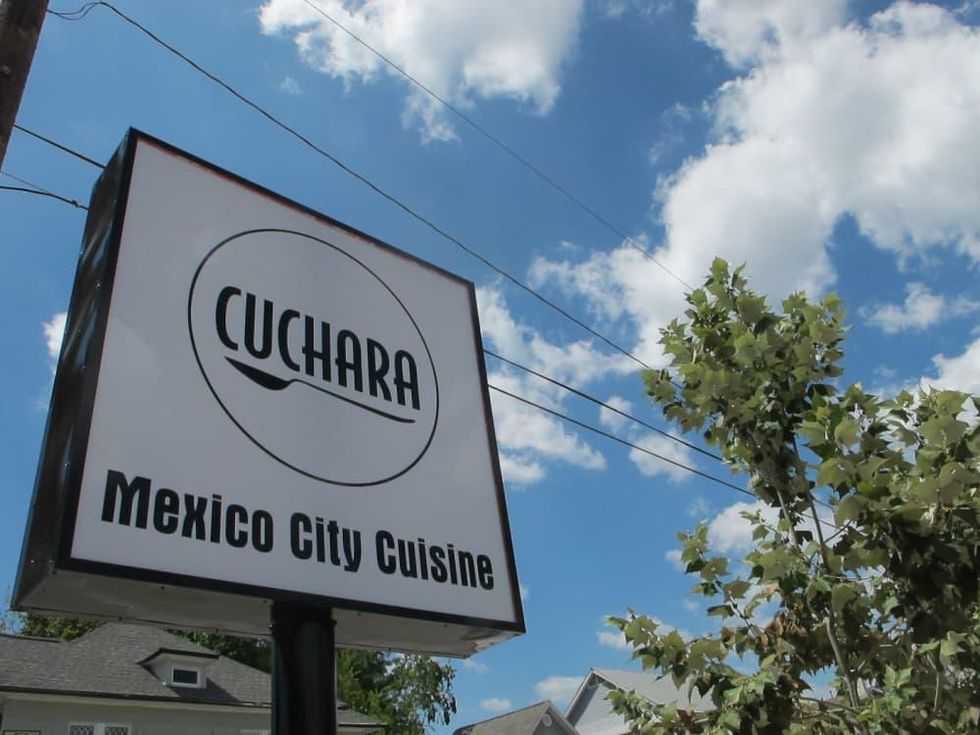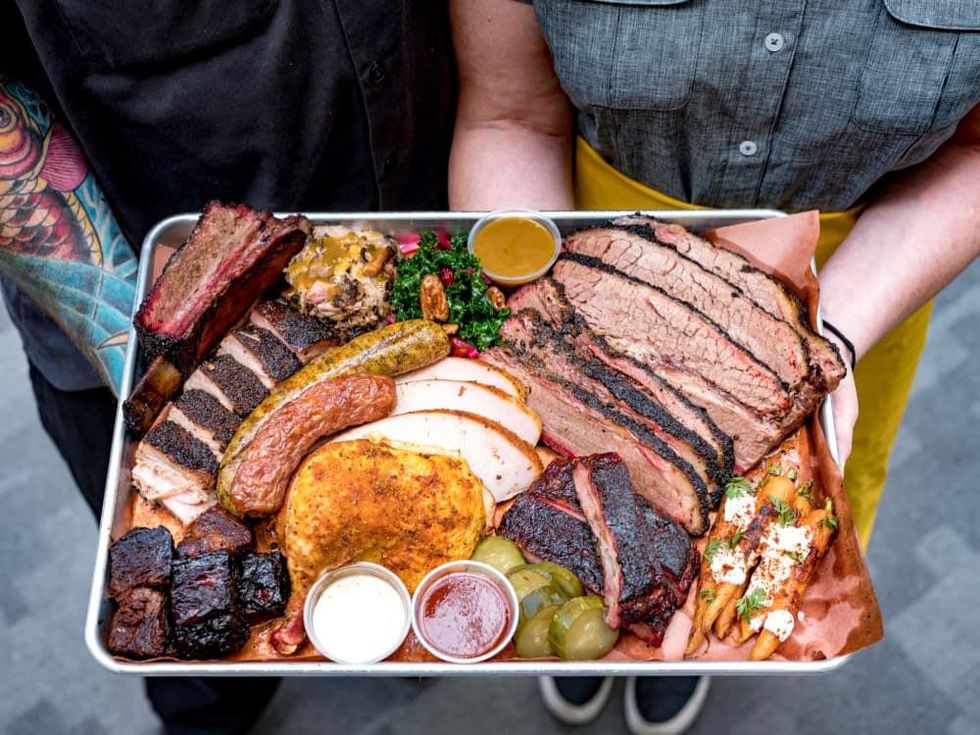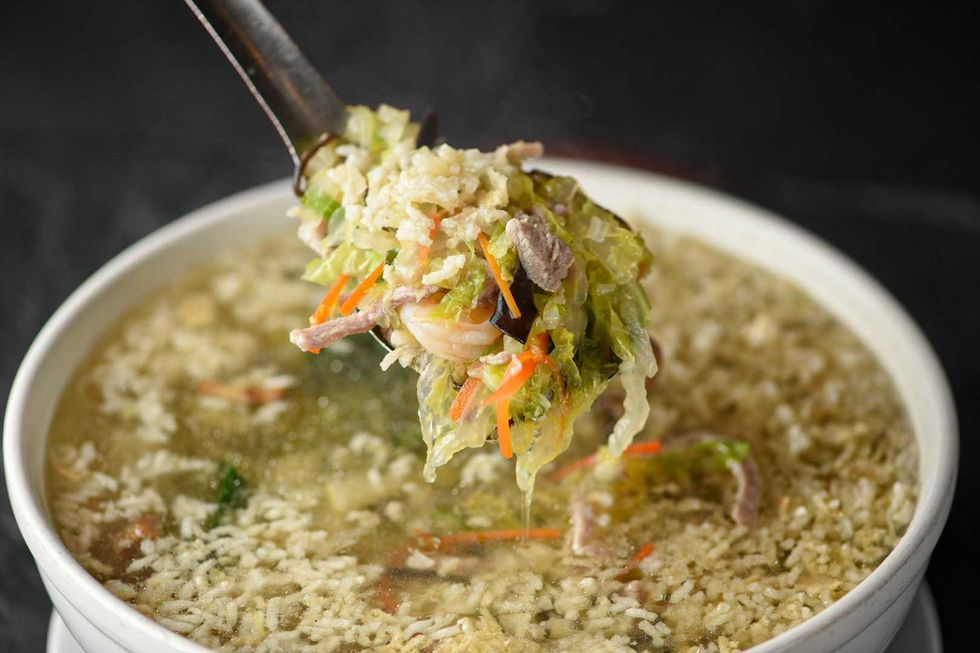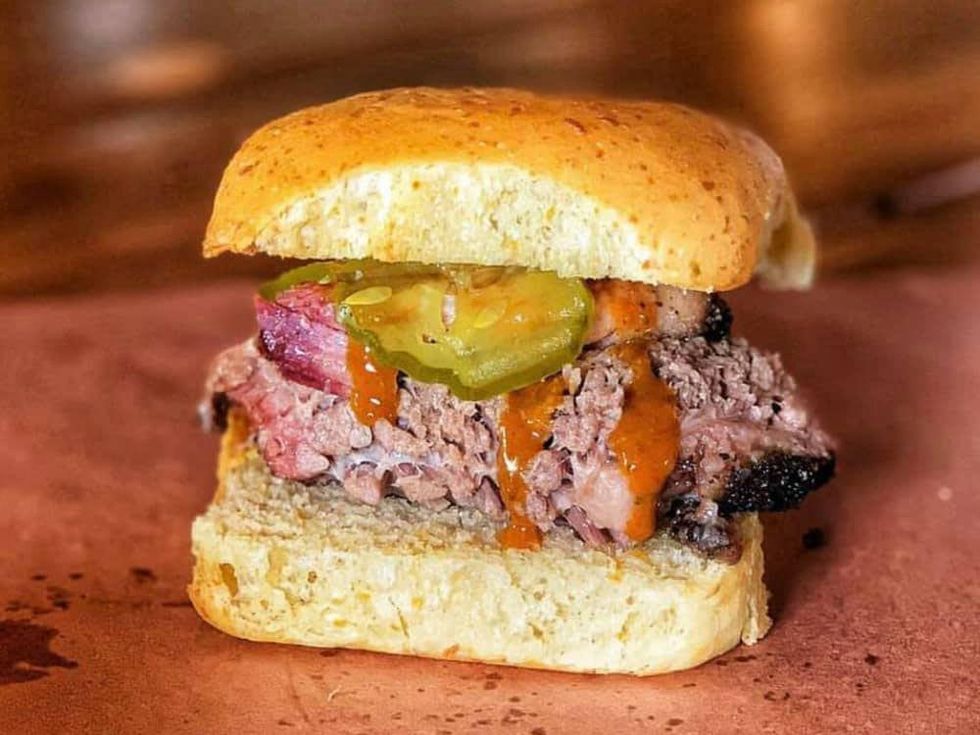Crafty Win
A small victory for beermakers: TABC labeling regs declared unconstitutional byfederal judge
 Photo via Jester King/Facebook
Photo via Jester King/Facebook Photo via JesterKingBrewery.com
Photo via JesterKingBrewery.com
A small but significant victory was had for craft beermakers and drinkers Monday when a federal judge ruled (partially) in favor of Austin's Jester King Brewery in a lawsuit against the Texas Alcoholic Beverage Commission.
Jester King filed a motion for summary judgement in Federal court in October over what it deemed to be violations of both its First and 14th Amendment rights.
Its First Amendment right to free speech, Jester King argued (along with two co-plaintiffs — a distribution company and an Austin restaurant) was violated by the TABC's oft-criticized demand that any beer stronger than 4 percent be labeled as ale and anything with less than 4 percent alcohol by weight be labeled beer. The celebrated craft brewery argued that misusing technical terms as shorthand for alcoholic strength ignored hundreds of years of beer-making tradition and, in effect, misrepresented its brews and brewing processes to the public.
The argument that breweries should be allowed to sell their beer straight to the public was rejected, however.
Jester King also claimed its 14th Amendment right to equal protection is obstructed by Texas' three-tier system, which mandates that breweries (which produce beer on-site and distribute it to consumers) may not sell their wares on site while brewpubs (which produce and sell on-site) may not distribute it to consumers.
(Texas wineries, in contrast, can sell their wine on-site and distribute.)
The lawsuit, the full text of which can be read here, also challenges the TABC prohibition against making public where a brewery's beer is sold and the requirement that foreign breweries attempting to sell in Texas obtain separate licenses (and often re-label their brews to fit Texas standards).
The final judgment, handed down Monday by U.S. District Judge Sam Sparks, declares several sections of TABC code to be unconstitutional with regard to free speech, particularly the area of code that addresses advertising regulations and labeling laws.
The argument that breweries should be allowed to sell their beer straight to the public (which failed in the last legislative session, as well) was rejected, however.
What's all this mean for consumers? Firstly, that portions of the alcoholic beverage and administrative code are unconstitutional, and thus immediately invalid.
Jester King can continue litigating if they choose, although Jester King's Ron Extract tells CultureMap he's not sure whether the brewery will continue litigation on the points that were not decided in the brewery's favor. (An open letter with the craft brewery's reaction to the judgment is available on the Jester King blog.)
If Sparks (whose special brand of honorable judge-ly humor is sprinkled throughout the judgment and gathered here in a special "greatest hits" courtesy of Freetail's Scott Metzger) has his way, the TABC can no longer prohibit breweries from telling customers or advertising where people can buy their favorite brand of brews; the TABC can no longer jack around with "beer" and "ale" labels based solely on alcoholic content; and the TABC can't keep Texas breweries from broadcasting how strong their brews are.
Organizations like Open the Taps who are jostling for change can also take heart in Spark's observation that "The State of Texas is lucky the burden of proof was on [the Plaintiffs] for many of its claims, or else the Alcoholic Beverage Code might have fared even worse than it has.”
The full judgment (in which Sparks also compares the now-defunct beer/ale labeling law to a decree that bats should be called "milk") can be read online here.
Tell us: What do you think of the judgment? Do you hope Jester King and company keep fighting the good fight?










